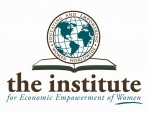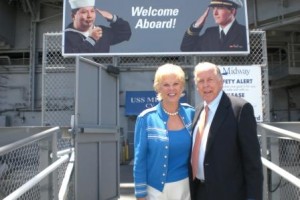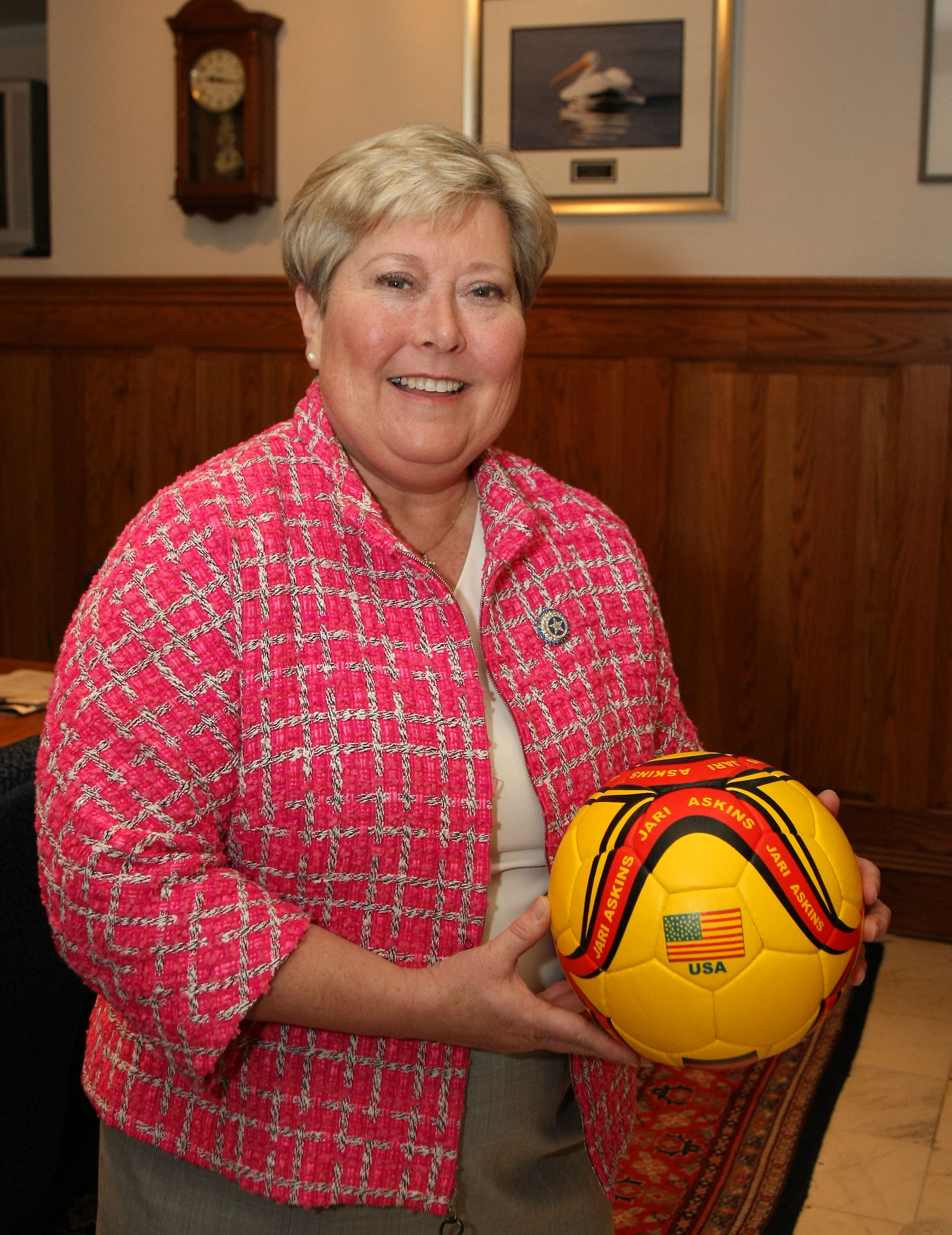Neese Attends U.S.-Afghan Women’s Council Meeting
July 9th, 2009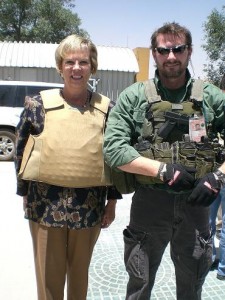
Neese during her visit to Afghanistan in 2007. Wearing her 50-lb flak jacket for protection, Neese described the trip as life-changing and one that renewed her commitment to the Peace through Business program.
Terry Neese, IEEW founder, recently attended the U.S.-Afghan Women’s Council meeting July 1 in Washington, D.C.
Neese has been a member of the Council since January 2007. However, she first became involved in 2005, when a Council member recommended Neese to former first lady Laura Bush.
“For this Council meeting, I met with Afghan leadership and briefed them on the work that our PEACE THROUGH BUSINESS program is doing in their country,” Neese said. “We also discussed their [Afghanistan’s] goals for getting more women to join them in political leadership roles.”
The PEACE THROUGH BUSINESS program provides long-term business education to women entrepreneurs in Afghanistan and Rwanda in four phases: In-Country Education, Leadership Development, International Women’s Economic Summit and Pay It Forward. The students are given business training through classes and high-level discussions and panels. The women are then paired with an American woman business owner to live and work with her for five days. This allows the students to take the knowledge they have learned in the classroom and apply it to real-life scenarios. The students are then tasked to pay forward their knowledge by teaching and mentoring women in their country.
While formulating the PEACE THROUGH BUSINESS program, Neese was most inspired by her trip to Afghanistan in 2007, which was scheduled through the Council as an official U.S. State Department trip.
“Meeting Afghan women business owners and listening to their obstacles, their pride in their country and their desire to rebuild the country made me realize how wealthy we are as Americans,” Neese said.
Dr. Phyllis Magrab, vice chair of the Council, describes the PEACE THROUGH BUSINESS program as inspirational and far-reaching.
“Her PEACE THROUGH BUSINESS program has a remarkable multiplier effect: it not only provides business training to Afghan women entrepreneurs, it also helps the women establish a network with private sector leaders in the United States, and empowers the women to return to Afghanistan to train others, to create jobs, and to help grow the economy,” Magrab said. “The program is inspirational to American and Afghan women alike.”
The July 1 Council meeting included a conversation with several Afghan women who are in Washington for training and consultations through a separate program sponsored by USAID. The women are leaders in many of their country’s ministries, including the Ministry of Education, Agriculture and Finance.
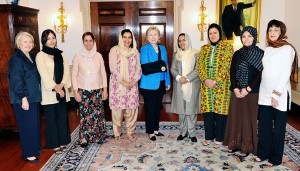
U.S. Secretary of State Hillary Clinton and Melanne Verveer, Ambassador-at-Large for Global Women's Issues, met with the same Afghan women in DC who attended the July 1 Council meeting. Photo courtesy of Michael Gross, U.S. State Department
The women also meet with the Secretary of State, Hillary Clinton, and the Ambassador-at-Large for Global Women’s issues, Melanne Verveer, for a brief meeting on July 7.
While in Washington, Neese also attended a reception for these same Afghan guests hosted by Ambassador Said T. Jawad, Afghanistan’s Ambassador to the U.S.
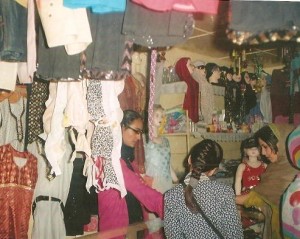

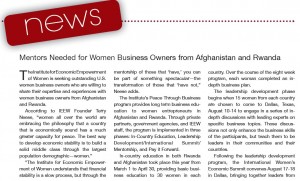 The Institute for Economic Empowerment of Women is seeking outstanding U.S. women business owners who are willing to share their expertise’s and experiences with women business owners from Afghanistan and Rwanda.
The Institute for Economic Empowerment of Women is seeking outstanding U.S. women business owners who are willing to share their expertise’s and experiences with women business owners from Afghanistan and Rwanda.
